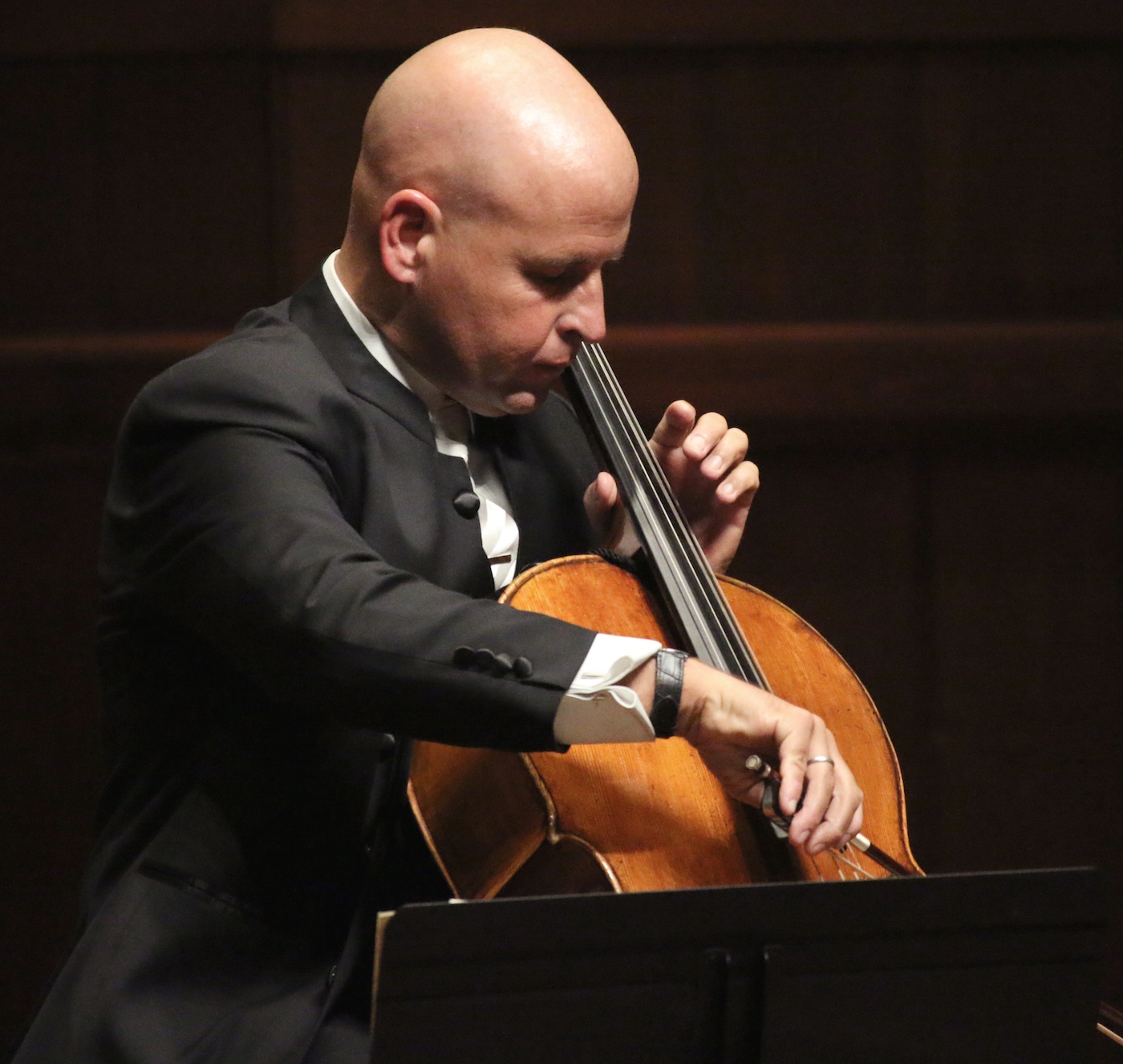‘General Kyd, Leo Stern’ Stradivari of 1684
For the last two months I have been playing the 1684 ‘General Kyd’ Stradivari belonging to the LA Philharmonic. For the previous eight years I played my 1748 Busan and 1841 Vuillaume, which are polar opposites from one another.
The look and feel of the Vuillaume is akin to a racehorse. The powerful A string creates a very French type of sound. The Busan, on the other hand, has a beautiful, dark varnish and what I would characterise as a Venetian sound. You need not be too gentle with the instrument – it seems to enjoy being played robustly.
The ‘General Kyd’ was originally of larger dimensions but was reduced around 1800. Wood was removed from the upper and lower bouts to make it a more easily playable size. It was originally a five-stringed cello, but the fifth string was a lower rather than higher string – I can’t imagine how difficult it must have been to play.

Robert deMaine, Piatigorsky Festival, Photo: Daniel Anderson
The cello was said to have been in Corfu in a gentleman’s home for the first hundred years of its existence. Corfu was under the control of Venice at the time. And from there it made its way to Italy and France, where I believe Vuillaume may have re-graduated the top. Then it made its way to London, where it was restored by the Hills. Many hands delicately turned a very, very large cello into a large cello.
It is one of the earliest Strads to retain its original label and is original in every important part. Raphael Carrabba has just spent 19 months doing a fantastic restoration; his work in my mind deserves as much credit as the Hill’s – he’s brought it back to perfection. As he was restoring it he said that one really has to wrestle with it. That’s the feeling I get when I’m playing it. It has a long stop length, so you really have to be in shape to play it well – you have to have practised your scales. In fact, I feel like if I didn’t take care of myself I wouldn’t be able to play it! But once you master it, it’s spectacular. It projects beautifully, it has a unique voice and personality and there’s so much rich depth and swagger to the sound. I’m blessed to be the current player and custodian.
Before the Piatigorsky Festival was in its current form, there used to be a two-week course at USC called the Piatigorsky Seminar, which I was lucky enough to be selected for in 1990. So this festival is a kind of homecoming for me and I’m very grateful that Ralph has included me in honouring this great man who spent much of his professional career right here. It’s an amazing full circle.